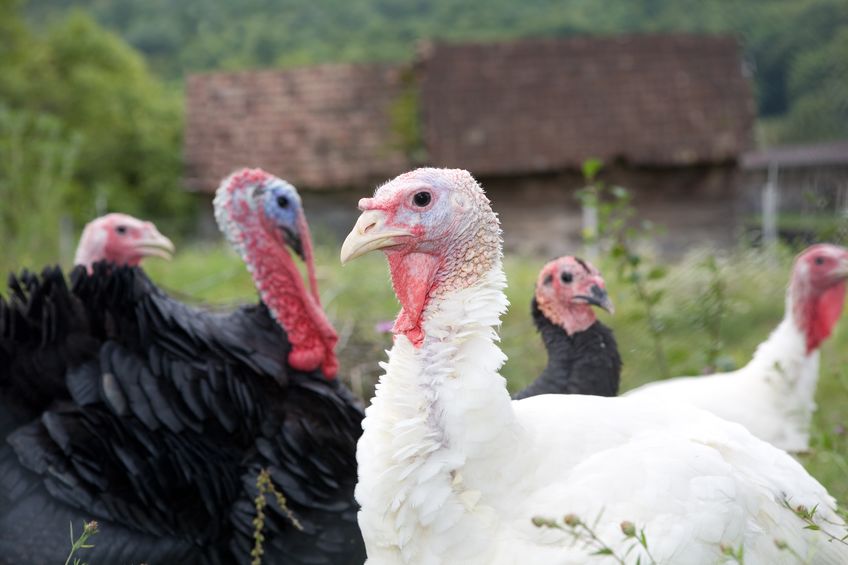
The government has confirmed a new case of highly-pathogenic bird flu in rearing turkeys at a premises in North Yorkshire.
The avian influenza outbreak, near Northallerton, Hambleton, was of the H5N8 strain, Defra said in a new update on Saturday 28 November.
Over 10,000 turkeys will be humanely culled to stop the disease spreading, the department added.
A 3 kilometre and 10 kilometre Temporary Control Zone has been put in place around the infected premises.
Last week, there was an outbreak of the H5N8 virus near Stroud, Gloucestershire, which was later confirmed to be highly-pathogenic.
An Avian Influenza Prevention Zone (AIPZ) is in force across the whole of Britain following numerous cases of bird flu in poultry and wild birds.
The AIPZ means there is now a legal requirement for all bird keepers to follow strict biosecurity measures as a way to mitigate the risk of the disease spreading.
Keepers with more than 500 birds will need to restrict access for non-essential people on their sites.
Workers will also need to change clothing and footwear before entering bird enclosures, and site vehicles will need to be cleaned and disinfected regularly.
The UK’s Chief Veterinary Officer Christine Middlemiss, along with the devolved governments of Scotland and Wales, announced the move last week.
She said: “Whether you keep just a few birds or thousands, you are now legally required to meet enhanced biosecurity requirements and this is in your interests to do, to protect your birds from this highly infectious disease.”
Backyard owners with smaller numbers of poultry including chickens, ducks and geese are also urged to strengthen their biosecurity measures in order to prevent further outbreaks.
The introduction of the AIPZ comes after two separate, unrelated bird flu cases in kept poultry and birds confirmed in Cheshire and Kent earlier this month.
A third case of highly-pathogenic H5N8 avian flu in poultry was confirmed on 11 November at a broiler breeder farm in Herefordshire.
A small number of wild birds in South West of England have also been found to have had the disease.
The outbreaks follows a decision to raise the risk level for avian influenza incursion in wild birds in Britain from ‘medium’ to ‘high’.
What does the prevention zone mean?
The AIPZ means farmers and bird keepers across the country must:
• Ensure the areas where birds are kept are unattractive to wild birds, for example by netting ponds, and by removing wild bird food sources;
• Feed and water birds in enclosed areas to discourage wild birds;
• Minimise movement in and out of bird enclosures;
• Clean and disinfect footwear and keep areas where birds live clean and tidy;
• Reduce any existing contamination by cleansing and disinfecting concrete areas, and fencing off wet or boggy areas.
The government said the prevention zone will be in place until further notice and will be kept under regular review.
Avian influenza is a notifiable disease and any suspicion should be reported immediately to the Animal and Plant Health Agency (APHA).
